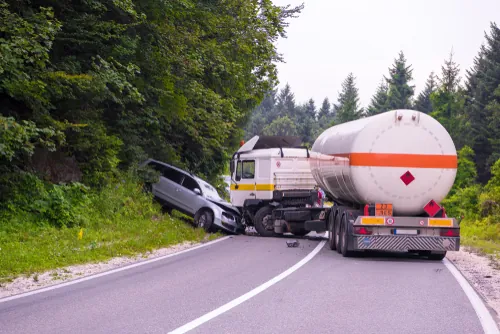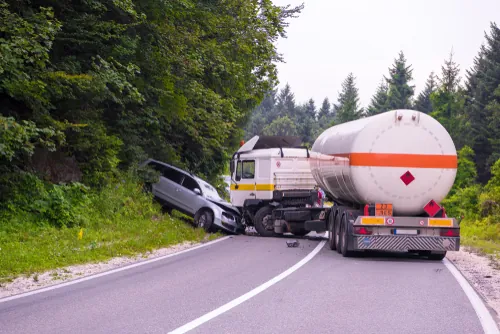Car Accidents Involving Trucks: What You Should Know

Some roads in Florida are known for their influx of commercial trucking traffic. While this is necessary to the transport of products and goods, when a truck driver makes a mistake, it can be dangerous – especially if another car is involved.
Common Truck Accident Causes
While many of the same causes of car accidents can also lead to truck accidents, there are also a few other causes to consider:
- Mechanical problems: Trucks do not have the same stopping abilities. If there is a problem with the brakes, it can lead to an accident as the truck is unable to come to a stop.
- Fatigued driving: While all drivers are at risk of fatigued driving when spending too long on the road, commercial truck drivers are constantly on the road. They are more likely to be tired when driving.
- Distracted driving: While anyone can engage in distracted driving, it can be more dangerous when a truck driver makes a mistake.
- Bad weather: Bad weather can affect how anyone drives. However, truck drivers may have an even harder time safely driving their trucks in rainy or slippery weather.
One of the biggest problems with commercial trucks is that they are much larger than passenger vehicles. If the truck driver is distracted or unable to come to a stop, they are likely to cause a much more severe car accident. Commercial truck accidents often lead to worse injuries, most often affecting the passenger vehicles.
Who is At Fault in a Truck Accident?
When a commercial truck accident happens, it is not always clear who is responsible. It could be the truck driver, especially if they do not follow Federal Motor Carrier Safety Administration (FMCSA) requirements, which limit the number of hours, or miles, that a driver can complete between rest.
It could also be the truck loader or mechanic’s fault if the problem is due to a mechanical issue or the truck carrying more weight than it should. Other parties that can be responsible include the trucking company, the manufacturer, or even the city group who is responsible for the road’s conditions.
This means that if you are in a truck accident, it will require careful investigative work to determine fault. This is also important to collect the funds you will likely need to recover.
When you work with a truck accident lawyer, they will collect important evidence to determine fault. This may include things like load reports, repair documents, training records, and even hiring practices. Your lawyer will look for any clear violations that could have led to the accident. These violations can also help with evaluating who is at fault.
Contact a Truck Accident Lawyer Today
If you were involved in a truck accident in Florida, it is important to reach out to a lawyer as soon as possible. The medical bills are likely to begin piling up and many truck accident injuries will prevent you from returning to work for a while, if ever. Your best option at collecting the compensation you need to recover is early on in the process.
Contact a Fort Lauderdale Personal Injury Lawyer to Discuss Your Truck Accident Case in Florida
Did you or a loved one sustain serious injuries due to a truck accident in Florida? Don’t let the medical bills pile up while you wait for the negligent party or their insurance company to do the right thing. Right now, you need an aggressive personal injury attorney on your side, fighting to get you the compensation you need, want, and deserve. The skilled attorneys at Lawlor, White & Murphey represent clients injured because of truck accidents in Coconut Creek, Plantation, Pompano Beach, and Pembroke Pines, and throughout Florida. Call (954) 525-2345 or fill out our online contact form to schedule a free consultation about your case. We have an office conveniently located at 2211 Davie Boulevard, Fort Lauderdale, FL 33312, as well as offices in Pembroke Pines, Weston, Coconut Creek, Plantation, and Pompano Beach.
The articles on this blog are for informative purposes only and are no substitute for legal advice or an attorney-client relationship. If you are seeking legal advice, please contact our law firm directly.
